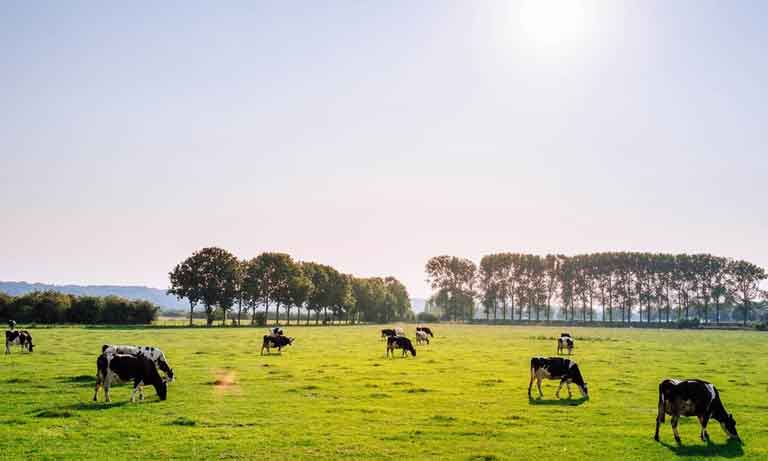British Veterinary Association responds to competition watchdog’s provisional decision and welcomes call for vet practice regulation
15 Oct 2025
Our new bovine TB policy brings together veterinary expertise and applies new and emerging scientific evidence to set out a holistic roadmap for the control and eradication of this devastating disease

We have set out a comprehensive approach to tackling bovine tuberculosis (bTB) across the UK, drawing on behavioural science and proposing 35 wide-ranging recommendations.
Our new bTB policy position, launched today, brings together veterinary expertise in cattle and wildlife and applies new and emerging evidence to set out a holistic roadmap to guide the efforts of vets, farmers, and government in bTB control and eradication. At the heart of the new policy is the application of behavioural science, recognising that the actions of vets and farmers are key to successful disease control programmes.
Some of the policy’s key recommendations include:
A supplementary paper also assesses the short, medium and longer-term impacts of Covid-19 on bTB control and recommends steps to ensure that veterinary surveillance and controls continue across all species, with appropriate social distancing measures, to avoid undetected spread of disease.
“Bovine tuberculosis remains one of the UK’s most challenging animal health and welfare issues. However, for too long, the debate has been unhelpfully characterised in terms of cattle versus badgers, and this misses the complex issues behind the disease, including understanding human behaviour and its impact on decisions.
“For the first time, we’re calling for behavioural science to be front and centre in the approach to bTB research and control. This means rewarding good biosecurity practices, providing vets and farmers with the tools and data they need to make evidence-based decisions, and recognising the human impact of this devastating disease.
“BVA continues to support a holistic approach to bTB control that utilises all the available tools in the toolbox, underpinned by the latest scientific evidence. In developing our new position, our expert working group reviewed current evidence and engaged widely with a range of stakeholders to set out a roadmap that we hope will guide vets, farmers, and the Government in ongoing efforts to tackle this disease.”
BVA’s new policy also identifies five key research priorities for the next five years, which include a better understanding of the effects of badger vaccination on the incidence of bTB in cattle; evidence to establish the role of cattle faeces in disease transmission; and better understanding of the causes of repeat breakdowns.
The top research priority - the development and validation of a cattle vaccine and DIVA (Differentiating Infected from Vaccinated Animals) test- was given an enormous boost last week (23 July) when Defra, the Welsh Government and the Scottish Government announced that cattle vaccination trials would soon get underway in England and Wales.
“The deployment of a viable cattle vaccine used in combination with a validated DIVA test has the potential to be an absolute game changer in our efforts to control and eradicate bovine tuberculosis and is something that our own expert bTB working group has identified as a key priority.”
Our new bTB policy was developed over 15 months by an expert working group comprising representatives from our devolved branches, the Ethics and Welfare Advisory Panel and BVA specialist divisions, including: the British Cattle Veterinary Association, British Veterinary Zoological Association, Association of Government Vets, Veterinary Public Health Association, and Sheep Veterinary Society, with contributions from Goat Veterinary Society, Pig Veterinary Society, Veterinary Deer Society and the British Small Animal Veterinary Association.
Consultations were also carried out with a wide range of experts from the UK and devolved governments, scientists, social scientists, practitioners, farming unions, and animal welfare charities.
Get tailored news in your inbox and online, plus access to our journals, resources and support services, join the BVA.
Join Us Today